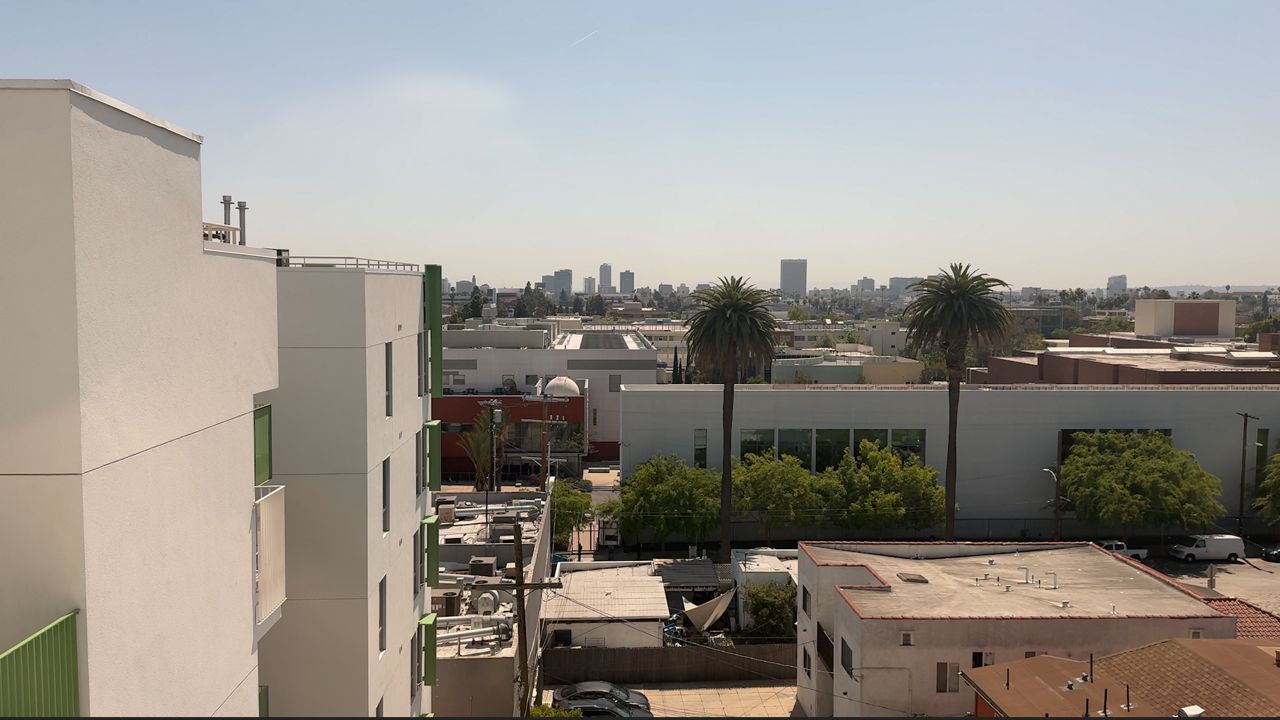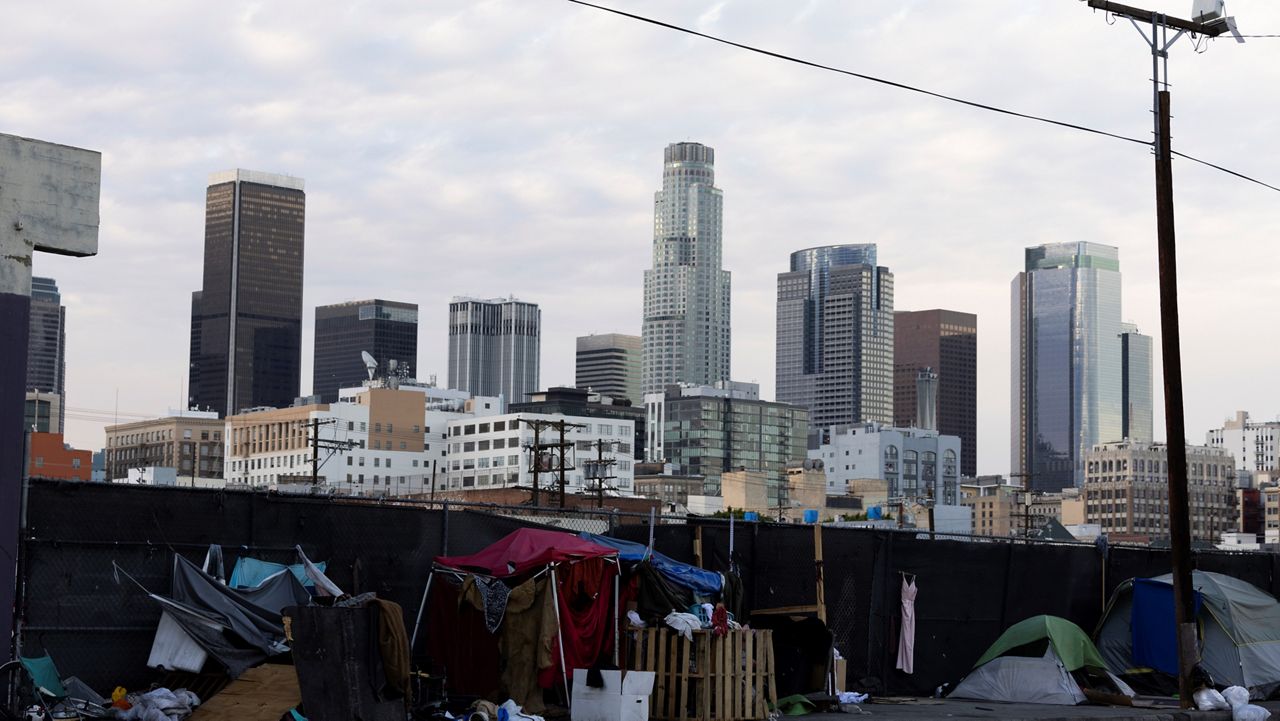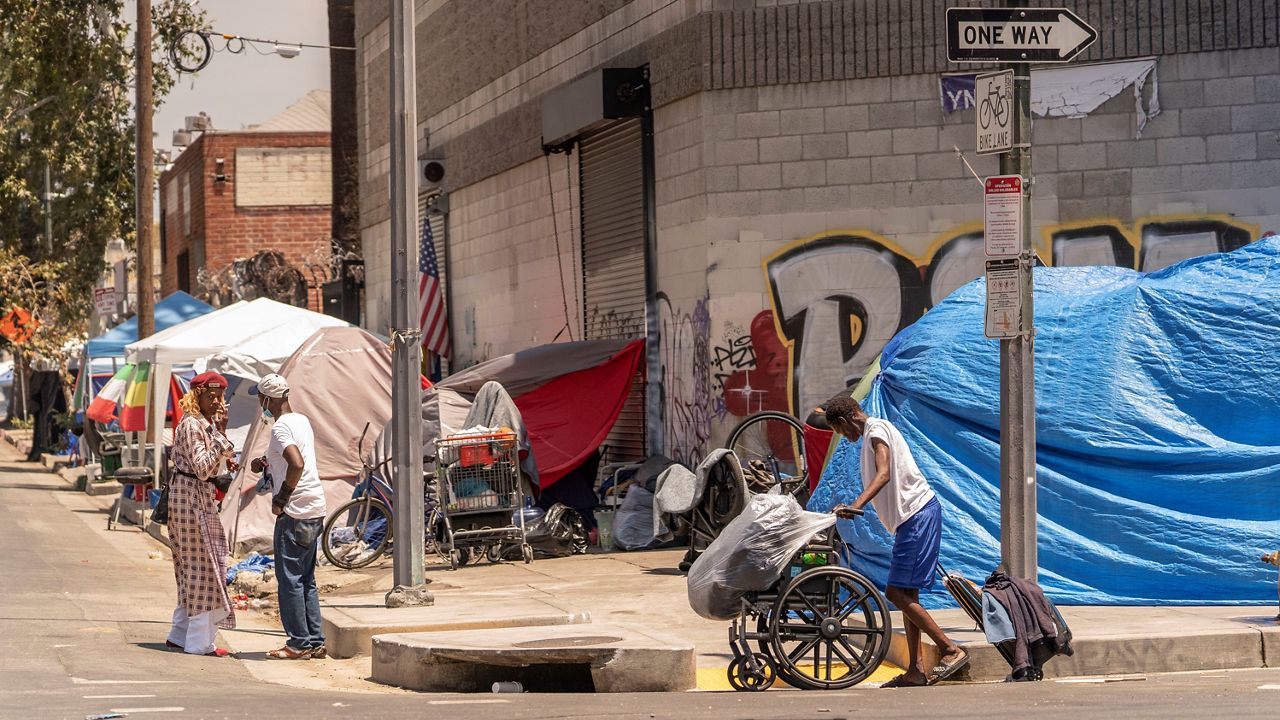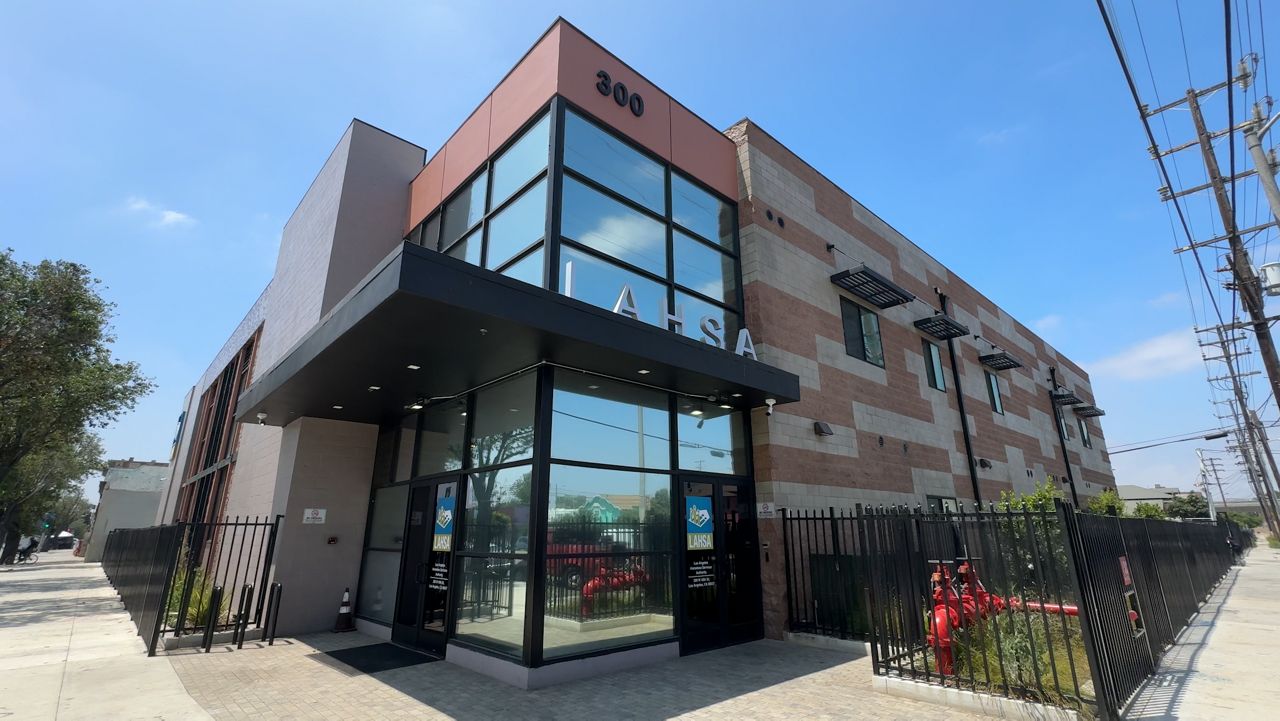Editor's Note: This is a collaboration between digital journalist David Mendez and multimedia journalist Taylor Torregano. To view the video report accompanying this story, please click the arrow above.
REDONDO BEACH, Calif. — At about 3 a.m. on Sept. 9, Redondo Beach City Attorney Mike Webb popped out of bed. For the first time in Los Angeles County history, Homeless Court was going to be held outside – and in his city.
Naturally, he began to fret about every possible thing that could go wrong.
“What if we hadn’t gotten the word out to all of the defendants? What if only a few people showed up?” Webb recalled thinking. “With COVID, we were losing people — they were making great progress until May, then they just stopped showing up.”
When the Coronavirus pandemic forced Redondo and the Los Angeles Superior Court to pause their initiative to offer deferred judgment and rehabilitation programs to the city’s population of people experiencing homelessness, Webb was forced to think outside the box.
For little more than a year, Redondo Beach had worked with the Los Angeles Superior Courts to hold a Homeless Court for the people experiencing homelessness on the streets, sidewalks, alcoves, and open spaces of its city – and only local cases of homelessness-related misdemeanors. It’s part of Redondo’s pilot program to respond to growing homelessness-related issues that have grown throughout the city.
“We’re here to help the homeless and help the community at the same time…it’s not a problem that’s going to solve itself,” said Redondo Mayor Bill Brand.
Non-violent offenses committed by people experiencing homelessness are cited and taken to Homeless Court, which – in normal times – takes place monthly at the Torrance Courthouse.
Rather than a typical courtroom experience, defendants are given a choice: if they enter a guilty plea, they may have their judgment deferred until they complete a set of court-assigned programs, such as substance-abuse programs, mental health counseling, or obtaining housing vouchers – whatever’s relevant to their situation.
If they fail to comply with the order, they’re found guilty and sentenced in accordance with the law. When they’ve complied with the court’s orders for their services and found permanent housing, they’re considered to have “graduated” from the court’s program, and their cases are dismissed.
“We have a carrot-and-stick approach, but it’s a really large carrot and as minimal a stick as we need,” Webb said. “If someone’s not going to get services, we do the punishment route. But we want to make it as easy as possible to accept those services.”
When COVID hit, the program was shaken. The court went dark for months during the pandemic. Defendants – people experiencing homelessness who may not have easy access to phones, mail, or the internet – would make arrangements to arrive on the day of their hearing only to be told to come back at a later date.
Beyond that, holding court dates during a respiratory virus outbreak is risky; by necessity, air recirculates through the courtroom and among both defendants and court personnel. Webb, as Redondo’s top attorney, isn’t often at these hearings — but as a former prosecutor and a long-time diabetic, he knows that prosecutors and defense attorneys spend hours in these hearings and that anyone with a weakened immune system is putting themselves in danger. Plus, the unhoused population is especially at-risk.
One alternative was to do smaller court dates, with fewer defendants, spaced out over more time.
“But if they only start coming in every other month, then you can’t make the progress toward getting the services that they need, getting the IDs to get Medicare benefits for treatment, and Social Security benefits for housing,” Webb said.
Then the idea hit him: Why not hold the court regularly, outside, in Redondo? He floated the idea to the city’s team of contracted homeless-services providers, then to the court, then to the Los Angeles County Sheriff’s Department, who provides bailiffs and security.
They all bought in. The first hearings were set for Sept. 9, in the parking lot of the Redondo Beach Police Department’s annex building. Police worked with LASD for security, even provided overhead surveillance using the department’s drones. The city’s Public Works department hand-built the tables and judge’s podium.
The date was specifically chosen to be the same day that the nearby St. James Catholic Church offers free, hot lunches; the city’s homeless-services partners, like Harbor Interfaith, PATH, and CLEAR Inc, a mental-health services provider, are on-site to assist with any court-ordered programs defendants may need.
Sixteen people had hearings scheduled, and of those, 14 people showed up. (“That’s a great percentage for the normal population, let alone the homeless population,” Webb said.)
“In a time where we have so much bad news and so much is going on with our society, it’s wonderful to see these agencies working together,” said Judge Rene Gilbertson, who presides over Redondo’s Homeless Court.
Gilbertson had nothing but the highest praise for Redondo, the city’s partners, and the defendants she saw in September. “I think seeing all of this, individuals come and they want to put their best foot forward. They don’t want us to be disappointed in them and they don’t want to be disappointed in themselves. The pride that they feel is truly a testament to this program.”
The relationship between the defendants and the judge was on display at the second iteration of Redondo’s Homeless Court, on Oct. 7.
“I’m starting to enjoy life again,” said defendant Teddy Campos. Campos told the court that his life had spiraled after the death of his father. “I wanted to thank everyone here. I’m just so thankful.”
“I know today that he’d be very, very proud of you,” Gilbertson told Campos from the bench. “Keep it up. Keep believing in yourself. Everybody is here for you.”
Webb recalled one person who graduated at the September hearing.
“I was prosecuting him 25 years ago. All of the cops know him. He spent a lot of time in and out of the criminal justice system,” Webb said.
But, over the course of the program, the man complied with the program, got onto medication, and found a job and an apartment in L.A. His case was dismissed; his older cases were expunged. And when he saw Webb, he turned to him, and said, “I told you I was going to do it!”
The outdoor Homeless Court program is planned to run outside until next August. But the Homeless Court program itself is one that Redondo believes can be replicated by other cities and communities within L.A. County.
“We take this seriously. We’re trying to get as much data as possible to see where we succeed and where we fall short, so future programs can build on this and hopefully be better than this,” Webb said. “Hopefully we’ll evolve.”











